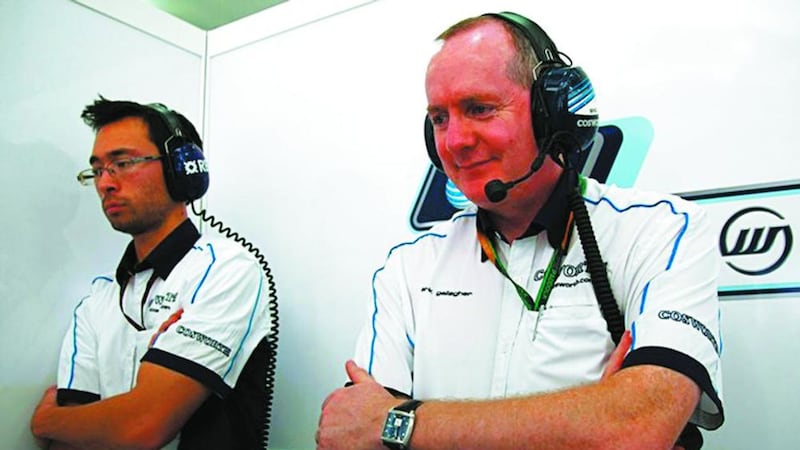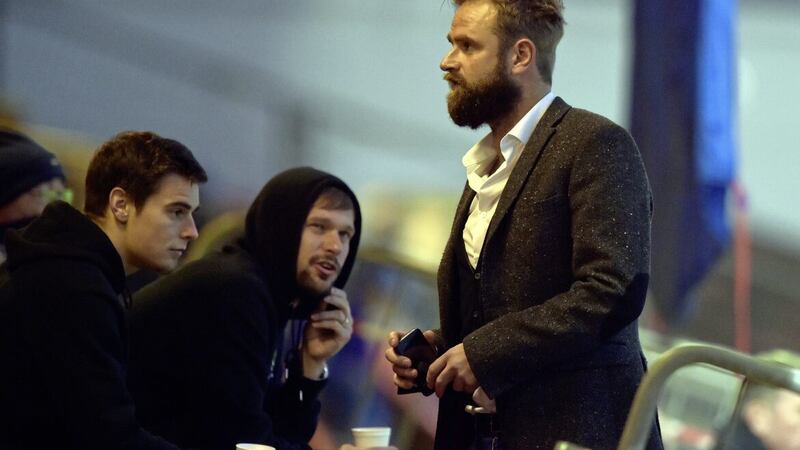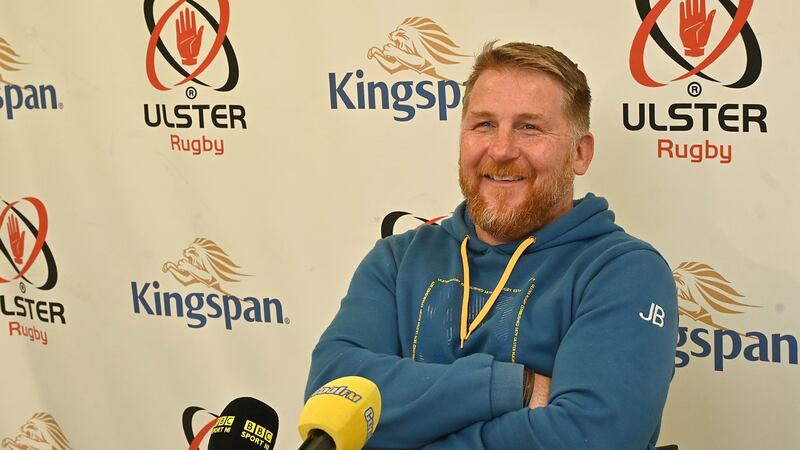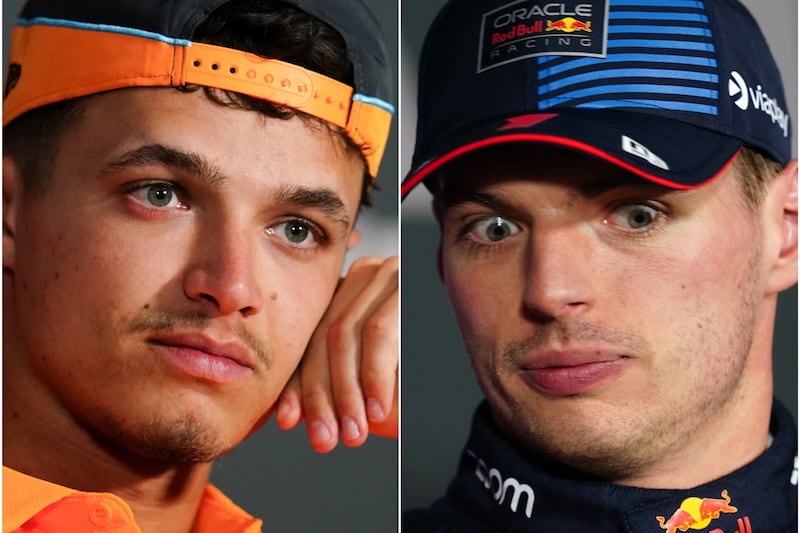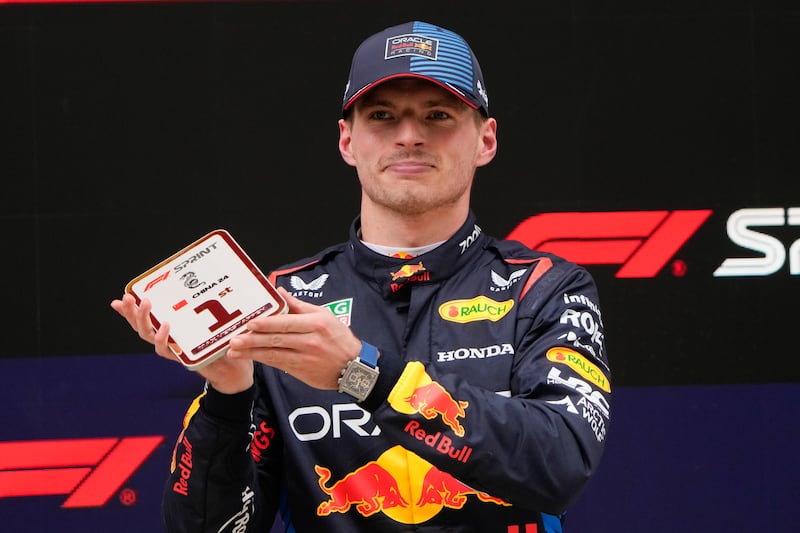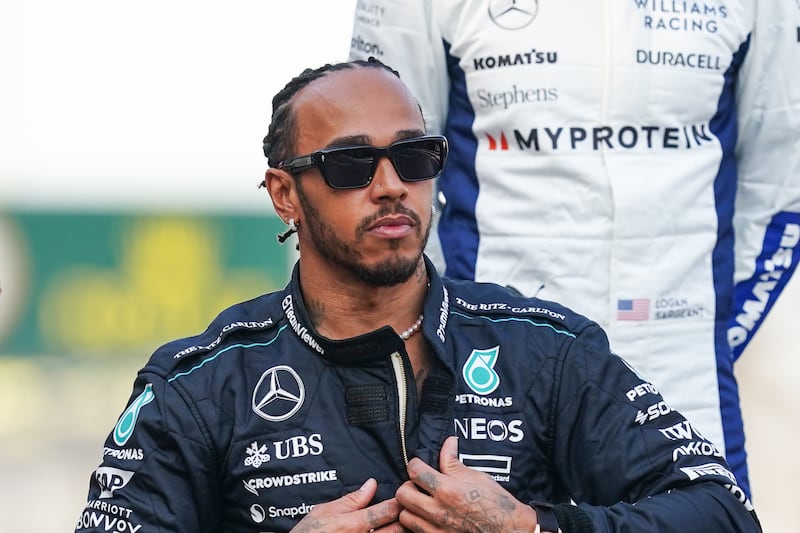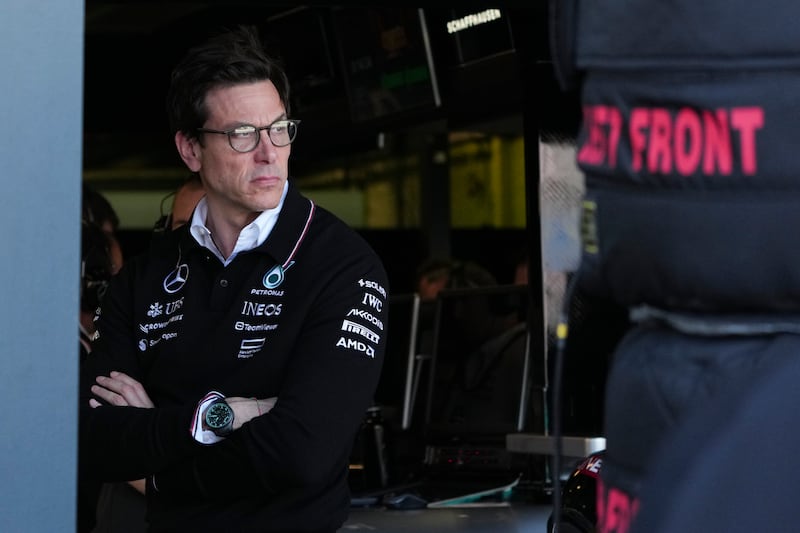Belfast man Mark Gallagher, now a broadcaster with 5 Live and Sky Sports, tells Andy Watters about the winding journey from childhood Formula One obsession to being a key part of Eddie Jordan’s
F1 team during the 1990s...
IN 1971, your average telly had three channels and, on a summer Saturday, BBC2 was devoted to live coverage of the British Grand Prix.
Like nine-year-olds do, Mark Gallagher sank deep in the sofa watching Emerson Fittipaldi and Jackie Stewart push their cars to the limit around Silverstone and, like sport should, the high-speed theatre grabbed him.
NNEEEEEAAOOWW, NNEEEEEAAOOWW, NNEEEEEAAOOWW…
He went from casual observer to Formula One fanatic in the space of a few minutes. He could almost taste the exhaust fumes and smell the burning rubber as the cars screamed up the straights, ducking and darting through hairpin bends and chicanes as the lead changed hands before Stewart’s Tyrrell took the chequered flag. Commentator Raymond Baxter’s words gave life to the pictures and, as the coverage ended with Stewart soaked in champagne, young Mark began counting the days down to the next race.
Forty-four years later, he does the same. The only difference is that Gallagher, who spent his early years in Andersonstown before moving to Belfast’s Antrim Road, is part of it all now. Thanks to a mixture of precocious ability, confidence, a have-a-go attitude and pure, unadulterated enthusiasm, the former Ulster Youth Orchestra cellist, St Malachy’s student and Queen’s economics graduate-turned journalist found his niche in the sport.
He became an integral part of the Jordan team in the 1990s when the nation was up on Sunday mornings to watch Eddie Jordan’s outfit take on and beat the ‘old money’ establishment. Since those days of roaring laughter and roaring engines - “we had parties whether we were winning or losing” - Jordan has disappeared from the F1 paddock.
In the aftermath Gallagher formed his own team and won A1GP World Cup of Motorsport in 2009. Now back in the media with BBC 5Live and Sky Sports, he travels the globe covering the thrills and spills of the World Championship.
“You’ve had an amazing career,” I point out.
“Yes, but it doesn’t feel like it was amazing,” he replied.
“Everything just happened one step at a time. It wasn’t like there was a masterplan, one thing just led to another. I remember meeting Eddie Jordan at Kirkistown when I was 14 and I asked for his autograph. I never thought I’d be working with him, friends with him...”
Motorsport wasn’t in his blood. The Gallagher family was better known for Gaelic games when it came to sport: “My uncle John played for Antrim and my dad was a keen club hurler and he had the scars to prove it,” he explained.
“I played Gaelic football and basketball at school, but my big thing growing up was the Ulster Youth Orchestra. From the age of seven until I went to Queen’s, two nights-a-week and every weekend I was playing the cello and the double bass. We did a tour of the east coast of America in 1978 and I think that’s where I got the travelling bug.”
By then, Gallagher was a Formula One devotee of course and he had been introduced to hands-on motorsport by neighbour Harold McGarrity: “We lived opposite Harold who, along with Patsy McGarrity, owned the McGarrity car dealerships,” he recalled.
“Harold was a big racer. I used to go over and help him prepare his racing car to go to Kirkistown. In Stockman’s Lane there was garage owned by a guy called Joe Greenan who used to rally and I used to go with him. I got the bug and started going to Kirkistown and Mondello whenever I could.”
He left St Malachy’s to begin a degree in economics and his parents, as parents often do, encouraged him to become an accountant. He had plans of his own, however: “A job came up in London selling advertising for Autosport, the Formula One magazine. I got it - I was amazed and my parents were disappointed - but you have to follow your passion.”
It just took off from there: he saw advertising as way to writing and writing as a ticket to the race track: “One week I wrote an article instead of selling ads and published it,” he said.
“The first the editor knew about it was when the magazine came out. He wasn’t very happy but it achieved its purpose because he said ‘if you sell ads during the week, you can write for the magazine at weekends’.
“Very quickly I ended up full-time as a journalist. I got to know all the people I could in the Formula One industry and ended up working for two of the biggest sponsors, Canon and Marlboro. I did interviews with Nigel Mansell and Ayrton Senna, so it was a fantastic experience and a good way to get to know the top drivers and learn how the commercial side of the sport worked. In 1990, Eddie Jordan was setting up the Jordan Formula One team and he asked me to come and run the marketing and communications.”
Led by irrepressible Dubliner Eddie - “he had an eye for talent and he had an eye for a deal” - the Jordan team cut its teeth in Formula Three before making the step up to the big leagues. For Gallagher the success of the team came down to two things - Jordan’s infectious personality and the 'céad mile fáilte' Irish atmosphere.
“Eddie is a very charismatic individual and fantastic at selling deals to people,” he said.
“His entrepreneurship went back to his experiences growing up in Dublin when he was selling second-hand cars to fund his racing. It was a very Irish team - there was Eddie, me, Gary Anderson from Coleraine, who designed the first eight cars, and Richard O’Driscoll [finance director] from Cork.
“Unlike a lot of other big Formula One teams, we were very welcoming. There was an open-door mentality to everybody - to sponsors, to the media, to anybody who wanted to come and talk to us and work with us.
“I think that came from Eddie, myself and Gary - anybody who wanted to have a bit of craic in the Formula One paddock would come to us. We had the best parties… we had parties whether we were winning or losing. We made sure we had fun and that’s a very attractive quality to fans, to the media and to sponsors. As we attracted more and more support, we became more and more competitive.”
Michael Schumacher made his Formula One debut for Jordan in 1991. It was his only race for the team, but Brazilian Barrichello stayed longer - from 1993 to 1996 - and raced alongside Newtownards native Eddie Irvine for three seasons.
“Eddie had an eye for talent and he had an eye for a deal and combining talent with a good deal meant he was able to structure a very strong driver line-up most of the time we were in Formula One,” said Gallagher.
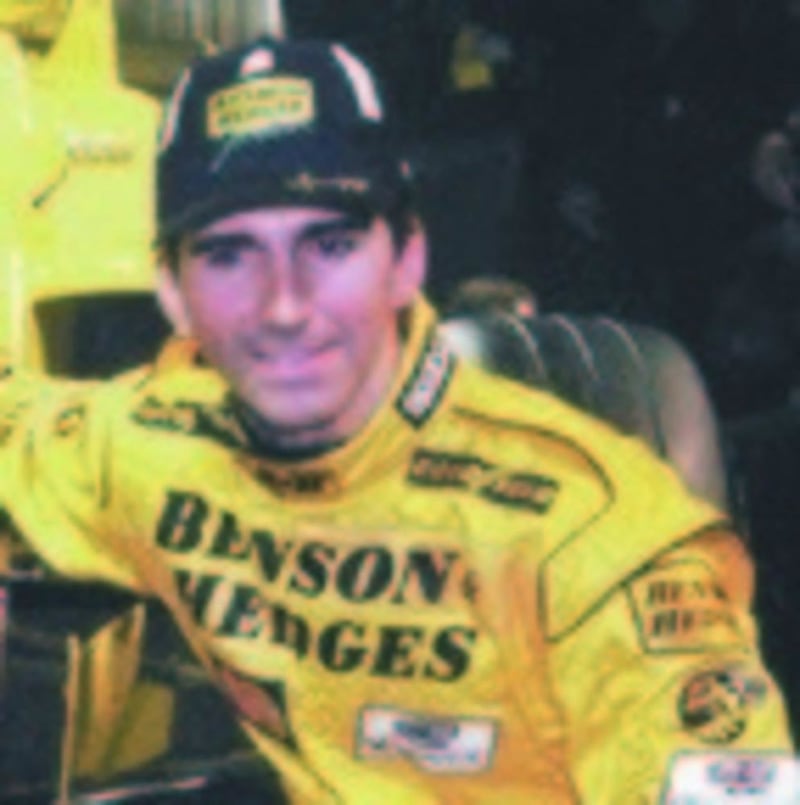
“Eddie Irvine had been a lodger in my house near Oxford for a year. Eddie Jordan had helped his career and was managing him, so it was great to get him into the team. We helped him prove his credentials and then sold him to Ferrari in a multi-million pound deal and we used that money to build our wind-tunnel which allowed us to become a very competitive team that won races.”
The income from the sale of Irvine combined with a lucrative sponsorship deal with Benson and Hedges, brokered by Gallahers Tobacco chief exec Nigel Northridge, paved the way for “a natural evolution in the driving seat”.
After Irvine and Barrichello moved on, the experienced Martin Brundle came in, but it was the signing of former world champion Damon Hill that propelled Jordan from the chasing pack to the front of the grid: “He was able to help us pin-point our weaknesses,” Gallagher said.
“But if there was one thing we employed Damon to do it was to win our first Grand Prix and he did that in Belgium in 1998. Ralph Schumacher was second, so we became the only team ever to achieve a one-two finish on our maiden victory.”
The following season, with Hill and Frentzen driving, Jordan finished third in the World Championship - Frentzen won in Italy and France and had four other top three finishes. That proved to be the zenith for Jordan because the dawn of the new millennium brought with it financial problems that saw the team go into decline before it was eventually sold. It now operates as Force India and still includes a lot of the people who worked for Jordan in the 1990s. Since then interest in F1 has waned in Ireland and Gallagher admits the sport isn’t as competitive as it once was.
“I love the sport, but it has become predictable and some of the races are boring,” he said.
“The science of Formula One means that unless something really goes wrong we can predict who’s going to win. From a sporting point of view that’s massively boring and that’s the challenge for Formula One.”
Alongside his work in the sport he is a much sought after speaker who provides international companies and brings business insights from Formula One: “They want to know how you get a pit crew to do a pit stop in 1.92 seconds. How do you get 20 ordinary mechanics to do something so quickly?” he said.
So what is the secret? Is it ability? Luck? Money? Gallagher says it all boils down to hard work. The glitz and glamour of Formula One is a façade – behind the scenes are ordinary people driven to do extraordinary things.
“From meeting a lot of people, the one thing that they all had in common was this never-give-up attitude,” he said.
“They’ve been through awful times, never had money for years and really struggled but just kept plugging away. There are lots of people who tried hard and didn’t make it, but you only have to spend five minutes with David Coulthard, Mika Hakkinen, Damon Hill or Eddie Jordan and you realise that they all have quite a similar story to tell.
“There are very few people of note in Formula One who got there because they had a rich dad who just wrote a cheque - most of them have come up the hard way including Lewis Hamilton. When you dig under the surface it comes down to people networking like hell, working hard and making the most of the breaks that they get.”
